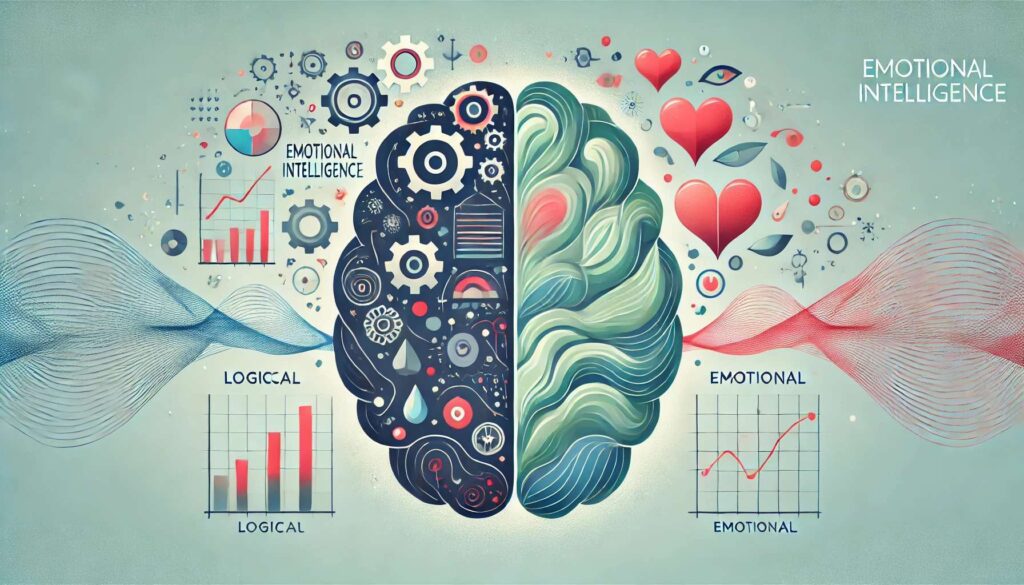Emotional Intelligence: The Key to Better Everyday Decisions

In today’s fast-paced world, we are constantly bombarded with choices—big or small. Whether it’s deciding how to respond to a stressful email or figuring out the next step in your career, decisions shape the trajectory of our lives. But what if I told you that the way we make decisions is heavily influenced by our emotions? And that the key to mastering these decisions lies in developing emotional intelligence (EI)?
What is Emotional Intelligence?
Emotional intelligence refers to the ability to recognize, understand, and manage your own emotions, as well as the emotions of others. It’s not about suppressing feelings but understanding them deeply and using them to guide our thoughts and actions in constructive ways.
In the context of decision-making, emotional intelligence helps in:
- Recognizing emotional triggers: Are you making decisions based on impulse or underlying fears?
- Staying calm under pressure: How do you handle stressful moments? Do your decisions reflect your long-term goals, or are they influenced by immediate reactions?
- Empathy in choices: How often do you consider how your choices affect others? Emotional intelligence promotes a balanced approach where both logic and emotions work together.
The Role of Emotional Intelligence in Everyday Decisions
- Self-Awareness: The Foundation of Sound Decisions
Self-awareness is at the heart of emotional intelligence. It involves understanding your own emotional state and how it affects your decisions. For instance, ever felt frustrated at work and made a hasty decision to quit a project or send an angry email? That’s the lack of self-awareness talking. By tuning into our emotional responses, we can catch ourselves before making regrettable decisions.
Tip: Before making a decision, take a moment to reflect on how you feel. Are your emotions clouding your judgment? Recognizing these feelings can help bring clarity.
- Managing Stress for Clearer Thinking
Stress is inevitable, but how we manage it can make or break our ability to think clearly. High emotional intelligence enables us to cope with stress in healthier ways—breathing techniques, mindfulness, or even just taking a step back. When stress is managed, decisions become more rational and thoughtful.
Tip: When faced with a stressful situation, give yourself time to calm down before making a decision. Sometimes stepping away from the problem for a bit leads to a better solution.
- Empathy: Understanding Others in Decision-Making
While many decisions are personal, others impact those around us—colleagues, family, or friends. Emotional intelligence encourages empathy, allowing us to put ourselves in others’ shoes before making decisions. By considering how our choices affect others, we create stronger, more positive relationships and avoid misunderstandings.
Tip: When your decision involves other people, pause and consider their perspective. How might they feel, and what would be the best outcome for everyone involved?
- Balancing Emotions and Logic
The ideal decision-making process combines both emotions and logic. Ignoring either can lead to poor outcomes. Emotional intelligence helps us recognize when to trust our gut and when to lean more on facts and data. It’s about balance—listening to your feelings while also considering the logical side of things.
Tip: Practice evaluating both your emotional responses and the logical facts of the situation before making a decision. This dual approach will lead to more well-rounded choices.
How to Cultivate Emotional Intelligence
Like any skill, emotional intelligence can be developed over time. Here are a few strategies to build this crucial skill:
- Mindfulness practices: Engage in daily mindfulness exercises like meditation or journaling to increase self-awareness.
- Active listening: Focus on truly listening to others without formulating your response while they’re still speaking. This helps build empathy.
- Seek feedback: Ask for feedback from those you trust. Sometimes others see emotional patterns we are blind to.
- Reflect on your emotions: Regularly take time to check in with yourself emotionally, especially before making decisions.
Final Thoughts: A Path to Smarter Decisions
Developing emotional intelligence is a journey, but its impact on your daily decision-making is undeniable. By understanding your emotions, managing stress, and fostering empathy, you can make more thoughtful, balanced choices in every aspect of your life—whether at work or in personal matters.
As you continue to hone your emotional intelligence, you’ll find that decisions are no longer daunting—they are opportunities for growth, connection, and clarity.
Source : Medium.com




